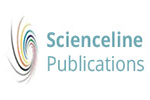(2021) Biochemical Properties and Cell Culture Affinity of Fowl Adenovirus Serotype-4 Strains Isolated from the Oviducts of Layer Hens in East Japan. Journal of World's Poultry Research. pp. 241-251. ISSN 2322455X (ISSN)
|
Text
JWPR 11(2) 241-251, 2021.pdf - Published Version Download (695kB) |
Abstract
In the present study, the biochemical properties of two fowl adenovirus serotype-4 (FAdV4) sample strains were determined. These were previously isolated from the oviducts of laying chickens from two layer operations in East Japan, namely M and Y farms. Tests for stability and sensitivity, hemagglutinating (HA) activity, and growth in two different cell lines were performed. The results showed that the M farm strain, (Japan/Ibaraki/M-HB2/2016) was sensitive to 100% ethanol, 52°C and higher temperature, and formaldehyde. The Y farm strain (Japan/Ibaraki/Y-H6/2016) was sensitive to 70% ethanol, 100% ethanol, 52°C and higher temperature, and formaldehyde. Both strains were stable against ether and chloroform, and lacked HA activity. To the best of the author’s knowledge, these FAdV4 strains were the first to be detected and isolated from laying chicken’s oviduct. Their biochemical characteristics; specifically, sensitivy to heat and formaldehyde, can be included in farm cleanup and disinfection protocol. This could help in reducing environmental contamination. The strains propagated well in chick embryo fibroblast (CEF) as indicated by cytopathic effect (CPE) observation with positive AAV-PCR and FAdV4-PCR results. The strains failed to propagate in MDCC-MSB1 cells as indicated by the negative results in both CPE and PCR. It appears that MDCC-MSB1 cells are not suitable for FAdV4 cultivation. However, only non-pathogenic FAdV4 strains were used in this work. It was not confirmed if pathogenic strains have the same behavior, perhaps, further trials are advisable. Future studies may benefit from the reduction of use of primary cells from live animals. This information contributes to the current understanding of FAdV4 characteristics.
| Item Type: | Article |
|---|---|
| Keywords: | Biochemical properties, Cell culture, Fowl adenovirus serotype 4, Laying hen, Oviduct. |
| Subjects: | Q Science > Q Science (General) S Agriculture > SF Animal culture |
| Divisions: | Journal of World's Poultry Research (JWPR) |
| Page Range: | pp. 241-251 |
| Journal or Publication Title: | Journal of World's Poultry Research |
| Journal Index: | Scopus |
| Volume: | 11 |
| Number: | 2 |
| Publisher: | Scienceline Publication, Ltd |
| Identification Number: | https://doi.org/10.36380/jwpr.2021.29 |
| ISSN: | 2322455X (ISSN) |
| Depositing User: | Dr. Daryoush Babazadeh |
| URI: | http://eprints.science-line.com/id/eprint/157 |
Actions (login required)
 |
View Item |

